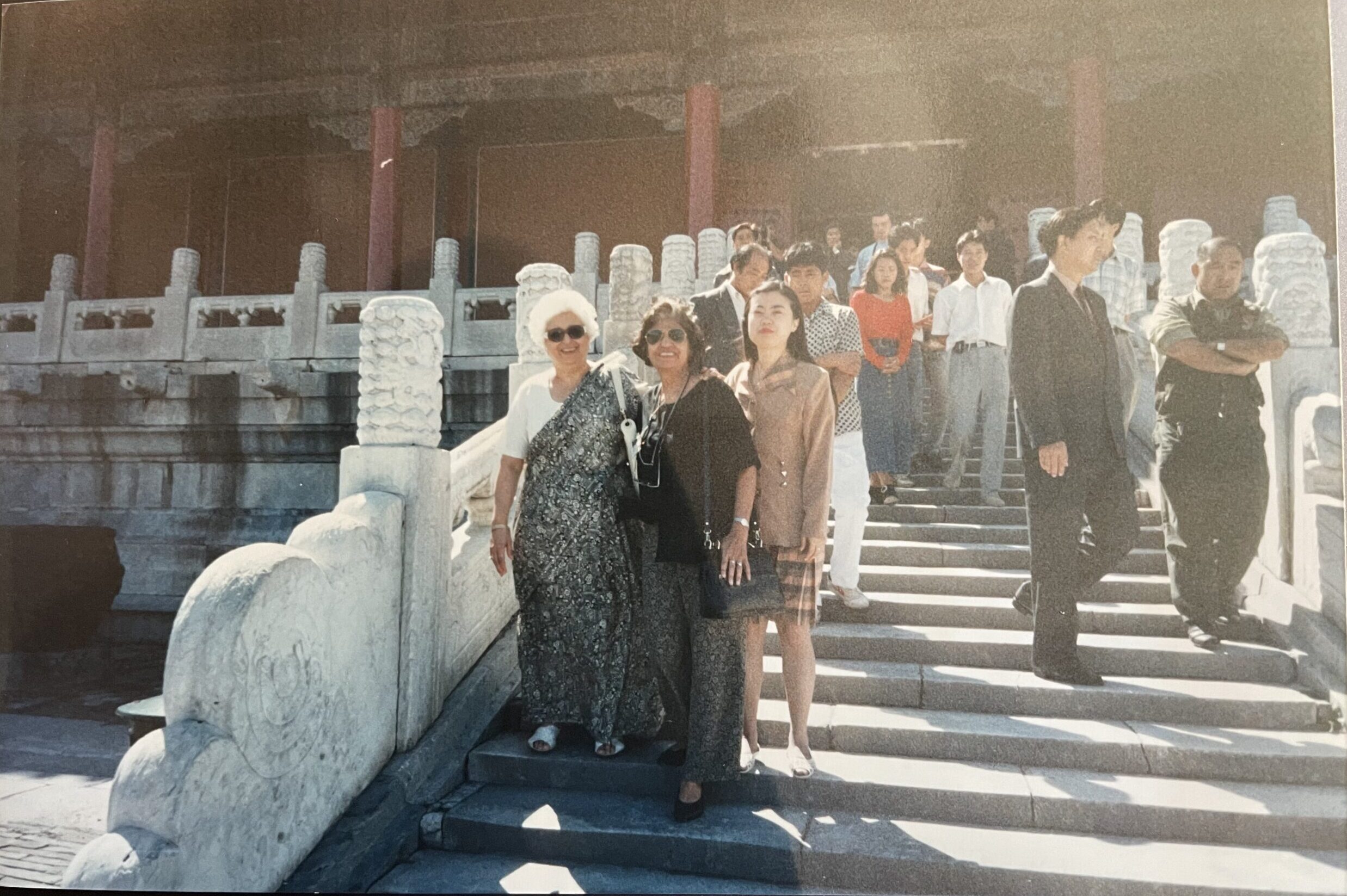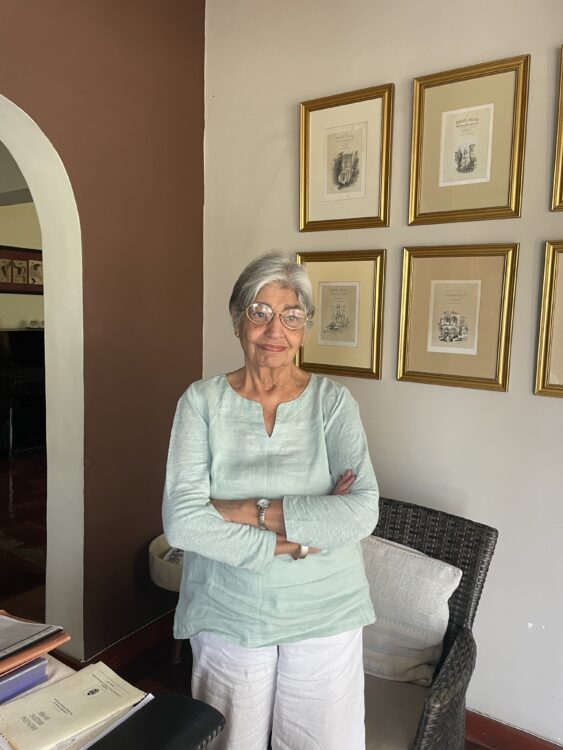HelpAge International is launching a campaign to honour the 30th anniversary of the historic 1995 Beijing Conference by spotlighting remarkable women who attended and helped shape the global gender equality agenda.
I have always been both a schoolteacher and a social worker – two roles that, in my experience, go hand in hand. Education is more than just academics; it is about shaping lives, nurturing potential, and creating opportunities.
A year before the Fourth World Conference on Women, I was invited to help at the Education Centre for Women in Democracy in Nairobi. We ran the organisation on a shoestring budget, producing newsletters and sharing information, often with no financial support. Yet, people rallied behind us, understanding that this was about something greater: women’s participation in democracy. The printer who published our work did it at no cost. It was a collaborative effort, driven by a shared belief in change.
When I was invited to participate in the Beijing Conference in 1995, I already had experience from the 1985 Nairobi conference, where I had worked closely with the Kenyan Education Department to produce reports on girls’ education for NGOs. But Beijing was on a different scale – an electrifying moment where the world’s women came together in a way that had never been seen before.
I remember the overwhelming sense of purpose as women from all over the world converged in Beijing. The logistics were intense; we had to buy a $10 ticket just to travel the 40 kilometres from our hotel in Beijing to the NGO Forum in Huairou, on the outskirts of the city. I still have my NGO Forum ID today, a cherished reminder of that historic time.
The opening ceremony was a spectacle. Irene Santiago, the Executive Director of the NGO Forum, gave a powerful speech, followed by a children’s choir, Chinese officials, and Gertrude Mongella from Tanzania, who was the Secretary-General of the Conference. Thousands of peace doves were released, symbolising the conference’s aims: peace, development, and equality. The Chinese added their own emphasis – friendship.
There were frustrations, of course. Many of us participating in the NGO Forum in Huairou faced difficult conditions, with poor accommodation and lack of running water. The Chinese authorities were strict, and the highly organised nature of the event sometimes felt rigid. But none of this could overshadow the significance of what we were doing. The NGO Forum had 26,549 participants, engaging in over 5,000 activities. It was a turning point, a step forward.

For us, political empowerment was a major focus. In Kenya, at the time, only six women sat in the 222-seat parliament, despite three decades of independence. Our first female cabinet minister, Nyiva Mwendwa, had only just been appointed in 1995, and she attended the conference with us.
The barriers women faced were immense: lack of financial resources, political parties that refused to support female candidates, and, painfully, even other women failing to vote for women. Women were expected to be followers, not leaders. We needed strategies to push for real political change - to influence parties, demand financial support for female candidates, and educate civil society to back women in leadership. Looking back, we have made progress. But there is still much work to do.
If I had to sum up my feelings after the Beijing conference, it would be: “A step ahead for women.” Not enough but still moving forward.
The official NGO Forum song was Keep on moving forward, and that is what we continue to do. Since 1995, some rights have improved. Women in Kenya can now open bank accounts without needing their husband’s permission. I remember how absurd it was that I, a working woman, still had to seek my husband’s consent to access my own money. When I went to renew my children’s passports, the immigration officer told me I needed a letter from my husband granting them permission to travel. I am their mother, yet my authority was not enough. I fought back, but in the end, the system forced me to comply. I am pleased that today, these things have changed.
Despite these gains, poverty and poor governance continue to hold women back. Financial independence remains a barrier to fully realising women’s rights. Yes, we see women running both small and large businesses, but systemic obstacles persist.
Older women, in particular, remain invisible in gender equality conversations. Governments do little to prioritise them, and society often overlooks their contributions and struggles. We must ensure that gender equality includes all women, at every stage of life.
After the Beijing Conference, we published Bringing Beijing Home, a document explaining the conference’s commitments, which we translated into Kiswahili so that more women across Kenya and East Africa could access and understand them. It was a small step, but an important one. Thirty years later, I can still look at it and reflect on the issues we fought for. The work is not done, but we are further along than we were in 1995.
If I could say one thing to young women today, it would be this: Women can do anything. There is nothing to hold you back. If you want something, go after it.
Yes, the fight continues. Yes, challenges remain. But we have made progress, and we will keep pushing forward. In Kenya, we now have the two-thirds gender parity rule in politics, where not more than two-thirds of the members of electoral or appointive bodies can be of the same gender. Who knows? Maybe in the next election, we will even have a woman president.
One step ahead – but many more to go.
 Villoo Nowrojee has been a feminist all her life. She attended the NGO Forums of the Third World Conference on Women in Nairobi and the Fourth World Conference on Women in Beijing. Her career involves teaching, social work, and library science. She has been Order Librarian at the Library of Congress Field Office, Nairobi, Kenya, and worked in the Africana Section of the Sterling Memorial Library at Yale University. She has extensive editorial experience and her publications include many articles and books. She was editor of Childwatch, the newsletter of the African Network for the Prevention and Protection against Child Abuse and Neglect (ANPPCAN), and Caucus, the newsletter of the Education Centre for Women in Democracy (ECWD).
Villoo Nowrojee has been a feminist all her life. She attended the NGO Forums of the Third World Conference on Women in Nairobi and the Fourth World Conference on Women in Beijing. Her career involves teaching, social work, and library science. She has been Order Librarian at the Library of Congress Field Office, Nairobi, Kenya, and worked in the Africana Section of the Sterling Memorial Library at Yale University. She has extensive editorial experience and her publications include many articles and books. She was editor of Childwatch, the newsletter of the African Network for the Prevention and Protection against Child Abuse and Neglect (ANPPCAN), and Caucus, the newsletter of the Education Centre for Women in Democracy (ECWD).
Villoo has taught in schools in Kenya, Tanzania, the United Kingdom, and the United States. She is involved in community activities through the Asian African Heritage Trust, in particular, the Asian African Heritage Exhibition at the National Museums of Kenya. She is the Publications Editor of the Trust and has edited and published a number of major literary and historical publications.